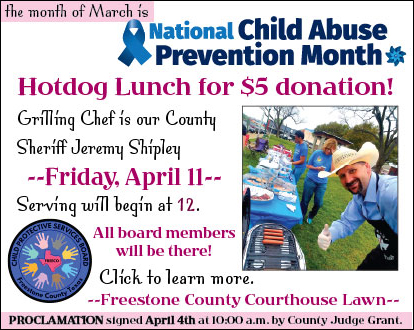Each year, from March through May, USDA Natural Resources Conservation Service (NRCS) Texas county field office staff and their conservation partners at Soil and Water Conservation Districts host Local Work Group meetings across the entire state. These meetings provide a forum to outline future conservation needs, identify conservation resource concerns and set priorities for a given resource area.
“These Local Work Group Meetings serve as a Conservation Needs Assessment forum and are a valuable part of the NRCS planning process,” said NRCS Texas State Conservationist Kristy Oates. “The meetings provide an opportunity for local land managers to be part of a collaborative effort to improve natural resources within their county.
“Locally led conservation begins with the community itself, working through the local conservation district,” Oates added. “It is based on the principle that community stakeholders are best suited to deal with local resource issues.”
Participants help:
–identify where the best investments can be made to address natural resource problems,
–share the work that has already been done in the county, and
–share their vision for what the county will look like when these natural resource concerns have been addressed.
This locally led, grassroots planning effort is the hallmark of USDA NRCS. These listening sessions are open to the public and provide time for participants to share their perspectives on local priorities NRCS offers through the technical assistance and through the Environmental Quality Incentives Program (EQIP) funding of the current Farm Bill. A complete list of Local Work Group meetings, times and locations for each county can be found via a statewide on the NRCS Texas website. Click on the county you are interested in to see meeting information and NRCS contact for the meeting.
Strategic approach to conservation
This local information gather process is part of NRCS’ strategic approach to conservation across the state of Texas. NRCS utilizes Local Work Group meetings to gather input from landowners, agency partners and other stakeholders to identifies and prioritizes natural resource concerns in the community. This information is collected and provided to the State Conservationist and the State Technical Advisory Committee (STAC), which is made up of partners at all levels of government, organizations, research institutions, non-profits, and landowners to concentrate conservation efforts and yield measurable results.
Based on the input received, NRCS works with partners to develop local strategies to help agricultural producers in in each county to implement conservation practices that address related resource concerns. Local Work Group meetings provide an opportunity to check-in on current projects, to ensure the project is meeting its goals and enabling adjustments to be made when necessary.
Visit farmers.gov to find your local USDA service center For more information, visit the NRCS Web site at http://www.tx.nrcs.usda.gov/.
USDA is an equal opportunity provider, employer and lender. To file a complaint of discrimination, write: USDA, Office of the Assistant Secretary for Civil Rights, Office of Adjudication, 1400 Independence Ave., SW, Washington, DC 20250-9410 or call (866) 632-9992 (Toll-free Customer Service), (800) 877-8339 (Local or Federal relay), (866) 377-8642 (Relay voice users).





